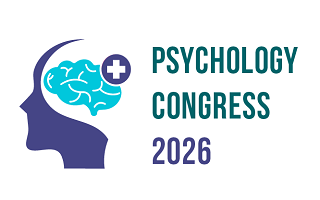3rd International Congress on
Psychology & Behavioral Sciences
March 26-27, 2026 | Osaka, Japan

Address: 1 Chome-9-15 Shinkitano, Yodogawa Ward, Osaka, 532-0025, Japan.
Psychology Congress 2026

Sofia University, Bulgaria
Abstract:
Time perspective is a psychological concept that helps organize personal experiences and social interactions by considering the dimensions of the past, present, and future. It acts as a cognitive framework that provides meaning and coherence to life events and is closely linked to individual differences in personality, motivation, emotions, and behavior. This study explores how different time orientations - such as past-negative, present-hedonistic, and future-oriented - impact mental health, quality of life, and adaptive functioning. To gather data, we used validated instruments, including a short version of the Zimbardo Time Perspective Inventory, the Big Five Personality Traits questionnaire, and scales for quality of life and cognitive style, from over 500 participants in Bulgarian socio-cultural context. The statistical analyses revealed significant effects of age and education on temporal orientation. Mediation analyses indicated that personality traits, particularly neuroticism and conscientiousness, influence quality of life and cognitive patterns through time perspective as a mediator. These findings suggest that a balanced time perspective - a flexible ability to switch between different temporal frames based on situational demands - is associated with psychological well-being and healthier behavioral outcomes. This underscores the potential for psychological interventions aimed at fostering multidimensional thinking and enhancing temporal flexibility. Integrating time perspective into psychological practice has the potential to significantly contribute to promoting mental health
Biography:
Radina Stoyanova is a chief assistant professor in the Department of Psychology at Sofia University, a clinical psychologist, and holds a PhD in health psychology
